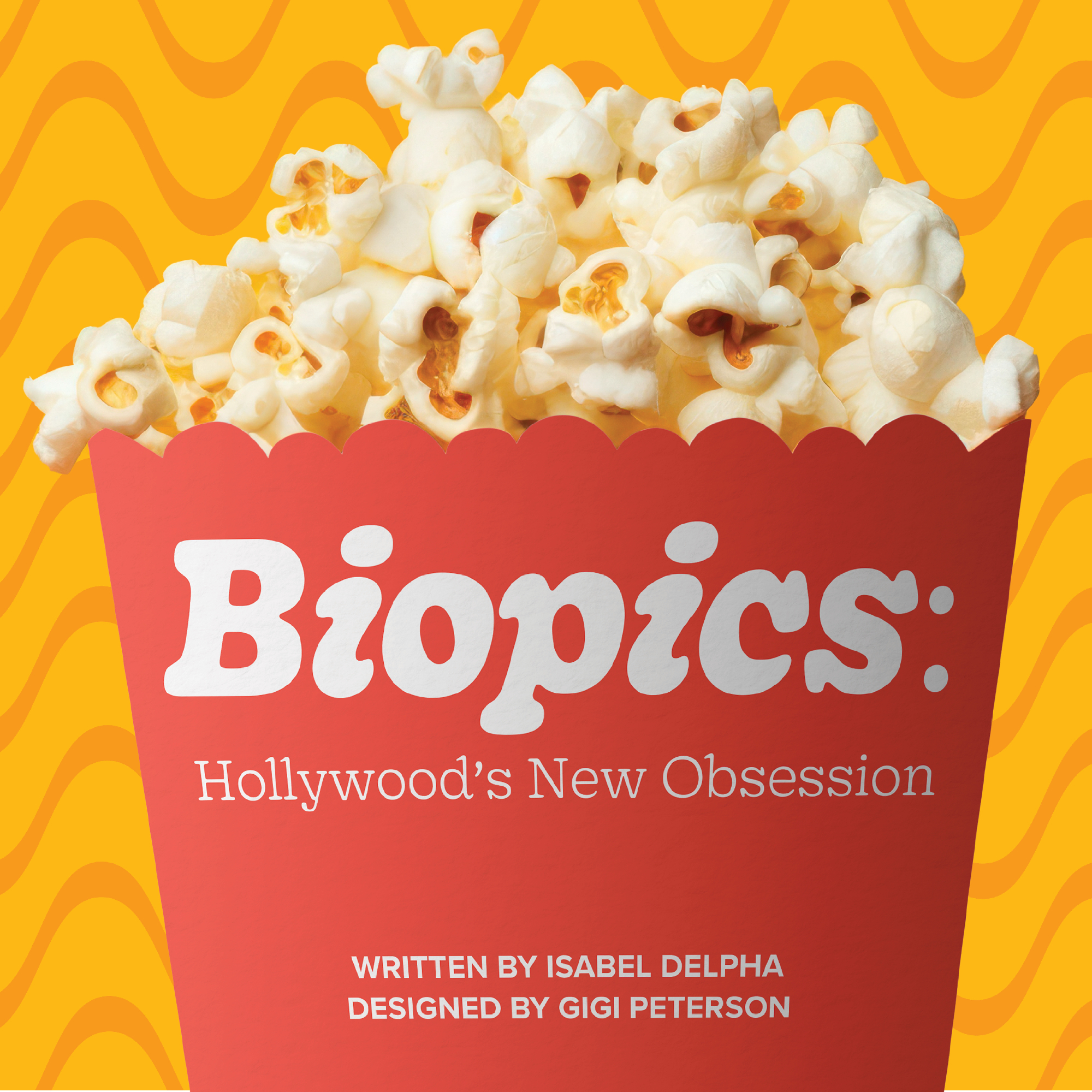
Movies have always been made to tell a story, and this has remained true even as Hollywood has evolved over the years. But lately, many of the stories Hollywood wants to tell seem to be following a particular trend: biopics. Biopics (short for biographical pictures) dramatize the lives of real people — usually celebrities and historical figures. These kinds of films are nothing new per se, but the sheer number that has been produced in recent years is staggering. In 2023 alone, countless biopics were released, such as “Napoleon,” “Priscilla,” “Maestro,” “Oppenheimer” and “The Iron Claw,” to name a few. Interestingly, biopics were once considered a “cheesy” genre, never garnering much critical acclaim until the 2000s. There were a few hits during this time, such as “Ray” and “Capote,” but it wasn’t until the extraordinary success of movies such as “Bohemian Rhapsody,” the 2018 biopic about Freddie Mercury, that this genre became as huge as it is today.
There are a few reasons why this genre is suddenly all the rage. Biopics are somewhat educational because they tell a true story, but can also be wildly entertaining through their characteristic dramatization of real events. This makes them more likely to appeal to fans of fact and fiction alike — much like how memoirs attract both nonfiction and fiction readers. Biopics can also serve as period pieces since they typically follow historical figures or long-time celebrities during earlier stages of their lives. This can attract an audience through nostalgia value alone. By casting current A-list actors to portray iconic figures of years past (i.e., Timothee Chalamet playing Bob Dylan in his upcoming biopic), biopics appeal to the fandoms of at least two major celebrities. So naturally, Hollywood is capitalizing on this appeal and producing biopics in unprecedented quantities.
The ethics of making biopics have invited skepticism and criticism. Depending on the subject, producers may be faced with the choice to include violent, explicit and problematic events from the celebrity’s life. They may face criticism for either choice. Including this kind of material might come across as insensitive or sensationalizing, but omitting it can be controversial as well, as was the case with “Elvis,” which faced backlash for not addressing the problematic age gap between Elvis and Priscilla Presley. Some biopics, like “Blonde” (about Marilyn Monroe) and the upcoming film “Back to Black” (about Amy Winehouse) have been criticized for posthumously depicting the darkest and most traumatic parts of celebrities’ lives. Many found this to be wildly insensitive and in poor taste, especially since the deceased cannot consent to this — though this is also true of films depicting late celebrities in even the most cheerful and flattering of lenses, further generating ethical concerns. Some works, such as Hulu’s “Pam & Tommy,” which Pamela Anderson has expressed discomfort with, have even gone entirely against the wishes of their subjects.
Criticisms of the recent surge in biopic production go beyond just the ethical implications. Film fans have noticed a significant decrease in original content from Hollywood as of late — down from 40.9% in 2000 to 18.6% in 2024 — and associate this issue with the rise in biopic production. Whether this unoriginality comes from laziness, a lack of creativity or a fear of failure is unclear, but audiences are becoming increasingly dissatisfied. Despite the controversy surrounding the genre, many recent biopics have still been highly successful. “Oppenheimer,” for example, earned over $950 million in the global box office and scored seven Oscars out of the 13 nominations it received. With upcoming films like “Beautiful” (about Carole King), “Michael” (about Michael Jackson) and “A Complete Unknown” (about Bob Dylan), it seems as though this genre still has an exciting future ahead of it. As long as these films are profitable, it’s practically inevitable that Hollywood will continue to make them. Hopefully, though, these movies aren’t made at the expense of basic ethics or original works.